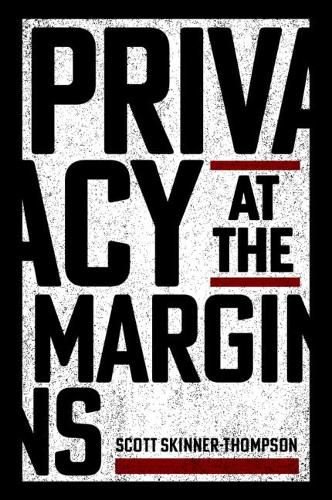Readings Newsletter
Become a Readings Member to make your shopping experience even easier.
Sign in or sign up for free!
You’re not far away from qualifying for FREE standard shipping within Australia
You’ve qualified for FREE standard shipping within Australia
The cart is loading…






Limited legal protections for privacy leave minority communities vulnerable to concrete injuries and violence when their information is exposed. In Privacy at the Margins, Scott Skinner-Thompson highlights why privacy is of acute importance for marginalized groups. He explains how privacy can serve as a form of expressive resistance to government and corporate surveillance regimes - furthering equality goals - and demonstrates why efforts undertaken by vulnerable groups (queer folks, women, and racial and religious minorities) to protect their privacy should be entitled to constitutional protection under the First Amendment and related equality provisions. By examining the ways even limited privacy can enrich and enhance our lives at the margins in material ways, this work shows how privacy can be transformed from a liberal affectation to a legal tool of liberation from oppression.
$9.00 standard shipping within Australia
FREE standard shipping within Australia for orders over $100.00
Express & International shipping calculated at checkout
Limited legal protections for privacy leave minority communities vulnerable to concrete injuries and violence when their information is exposed. In Privacy at the Margins, Scott Skinner-Thompson highlights why privacy is of acute importance for marginalized groups. He explains how privacy can serve as a form of expressive resistance to government and corporate surveillance regimes - furthering equality goals - and demonstrates why efforts undertaken by vulnerable groups (queer folks, women, and racial and religious minorities) to protect their privacy should be entitled to constitutional protection under the First Amendment and related equality provisions. By examining the ways even limited privacy can enrich and enhance our lives at the margins in material ways, this work shows how privacy can be transformed from a liberal affectation to a legal tool of liberation from oppression.